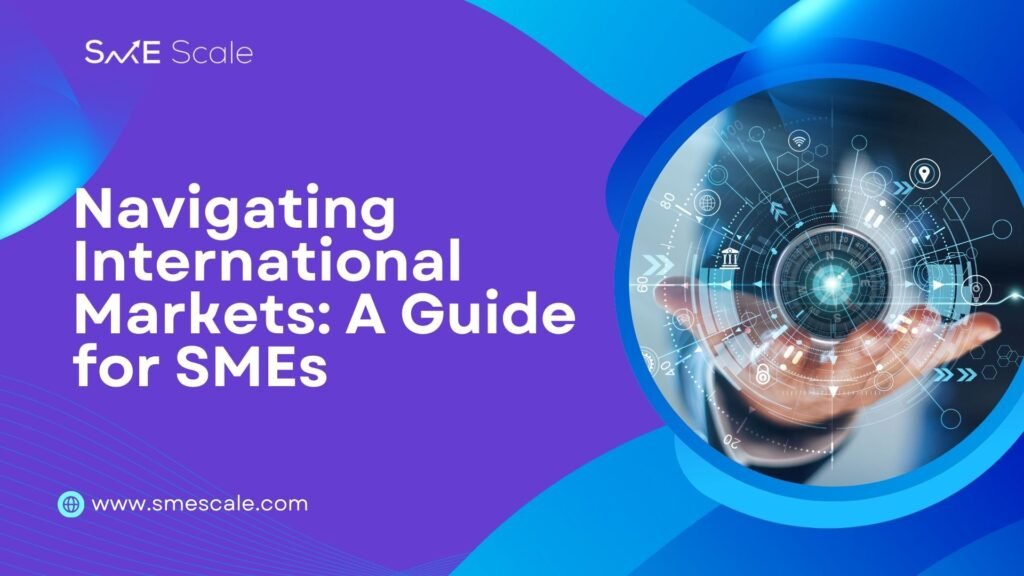
Expanding into international markets is an exciting opportunity for small and medium-sized enterprises (SMEs) to unlock growth, diversify revenue streams, and build global brand recognition. However, navigating the complexities of international business requires careful planning, cultural awareness, and strategic marketing. This guide will explore how SMEs can successfully enter new markets, featuring a real-life case study and tying in the psychological factors that influence success.
Why Expand Internationally?
International markets offer SMEs:
Increased Revenue Potential: Tapping into global markets allows businesses to reach more customers and diversify income sources.
Competitive Edge: Building a global presence establishes your brand as an industry leader.
Risk Mitigation: Operating in multiple markets reduces reliance on a single economy, providing stability during economic downturns.
Innovation Opportunities: Exposure to international customers and competitors drives creativity and innovation.
Real-Life Case Study: SME Scale’s Journey to Global Reach
Background:
EcoClean Solutions, an SME specializing in environmentally friendly cleaning products, had successfully built a loyal customer base in its home country. Recognizing the growing demand for eco-friendly solutions worldwide, the company decided to expand into international markets, starting with Europe and Asia.
Challenges:
Understanding cultural nuances and customer preferences in diverse markets.
Establishing a reliable supply chain and logistics network.
Creating marketing campaigns that resonated across cultures.
Solution:
EcoClean Solutions partnered with SME Scale to develop a comprehensive international market entry strategy. Together, they implemented the following steps:
Market Research:
SME Scale’s AI-driven tools analyzed trends, consumer behavior, and competitive landscapes in target regions.
Research revealed key insights, such as the popularity of sustainable products in Scandinavian countries and the emphasis on affordability in Southeast Asia.
Localized Marketing Campaigns:
Using AI-powered data analysis, the team crafted tailored marketing messages for each region.
In Europe, campaigns highlighted EcoClean’s certifications and environmental impact. In Asia, the focus shifted to affordability and product efficacy.
Cultural Adaptation:
SME Scale’s consultants provided cultural sensitivity training for EcoClean’s marketing and sales teams.
Packaging and branding were adjusted to align with local tastes and values, such as using minimalistic designs for Scandinavian markets.
Building Distribution Channels:
The partnership facilitated collaborations with local distributors and e-commerce platforms to streamline product availability.
Results:
EcoClean Solutions achieved a 60% revenue increase within the first year of international operations.
The brand’s social media following grew by 200% as customers engaged with localized content.
Operational efficiency improved through optimized logistics and AI-powered inventory management.
The Psychology Behind International Expansion
Expanding into global markets involves understanding the psychology of stakeholders, including customers, employees, and partners:
Customer Psychology:
Consumers prefer brands that understand their cultural values. Localizing products and marketing campaigns fosters trust and loyalty.
Leveraging social proof, such as testimonials from local influencers, reinforces credibility in new markets.
Employee Engagement:
Employees are more motivated when they see their company embracing diversity and pursuing ambitious goals.
Providing training on cultural sensitivity and global business practices boosts confidence and productivity.
Partner Collaboration:
Building strong relationships with local partners requires empathy and clear communication. Understanding cultural norms ensures smoother collaborations.
Tips for SMEs Entering International Markets
Conduct Thorough Research:
Understand market demand, regulatory requirements, and cultural preferences in your target regions.
Localize Your Strategy:
Adapt your products, branding, and marketing to resonate with local audiences.
Leverage Technology:
Use tools like AI-driven analytics from partners like SME Scale to identify opportunities and streamline operations.
Foster Relationships:
Build connections with local distributors, influencers, and customers to establish trust.
Measure Success:
Set clear metrics to evaluate your performance in each market, such as revenue growth, customer acquisition, and brand recognition.
Conclusion
Navigating international markets may seem daunting, but with the right strategy and tools, SMEs can achieve remarkable success. The journey of EcoClean Solutions illustrates how combining market research, localized marketing, and cultural awareness can unlock global growth opportunities.
Partnering with experts like SME Scale ensures that SMEs have the support and expertise to thrive in the international arena. By understanding the psychological and logistical aspects of global expansion, SMEs can build resilient, future-proof businesses that make an impact worldwide.

